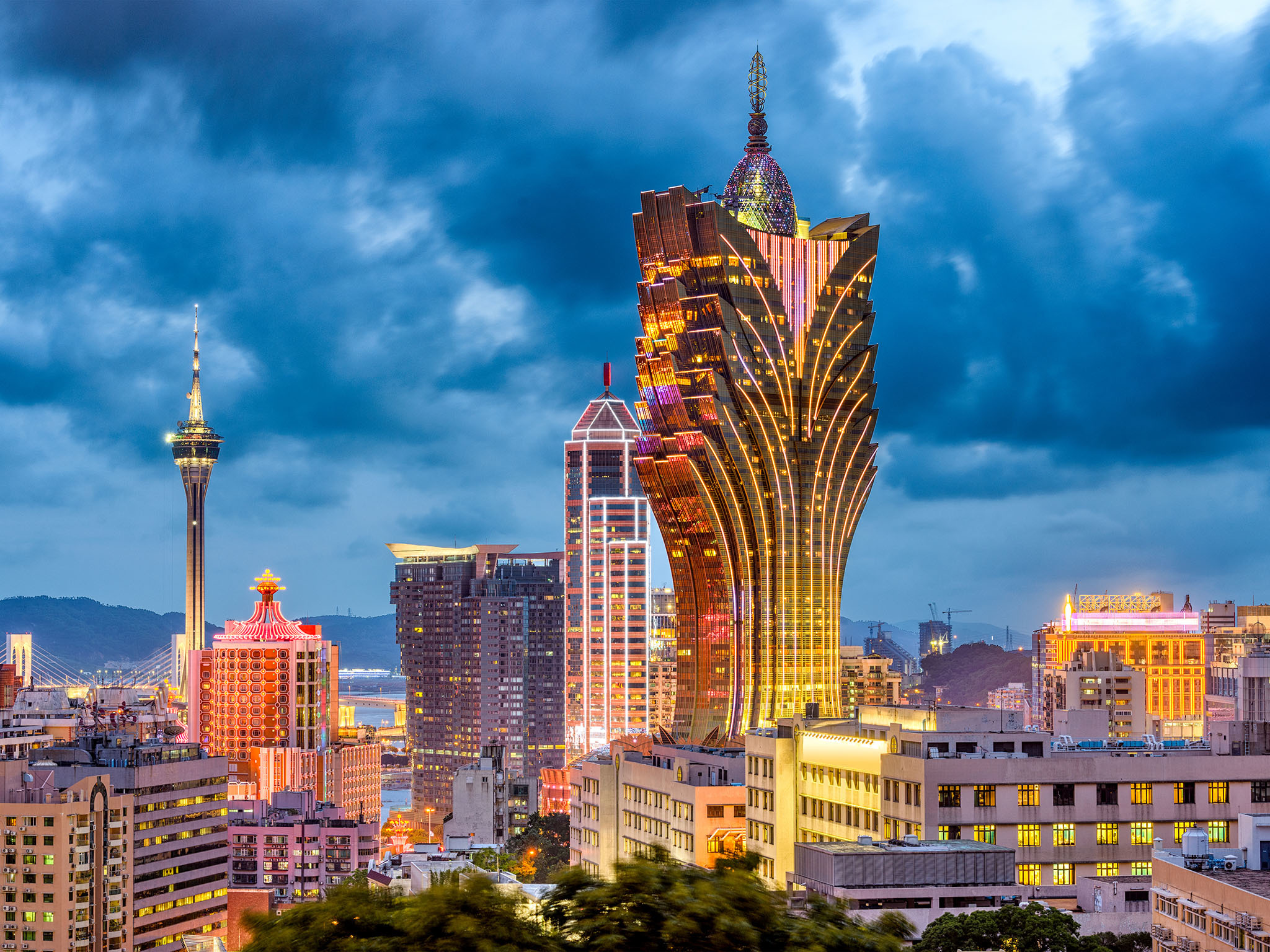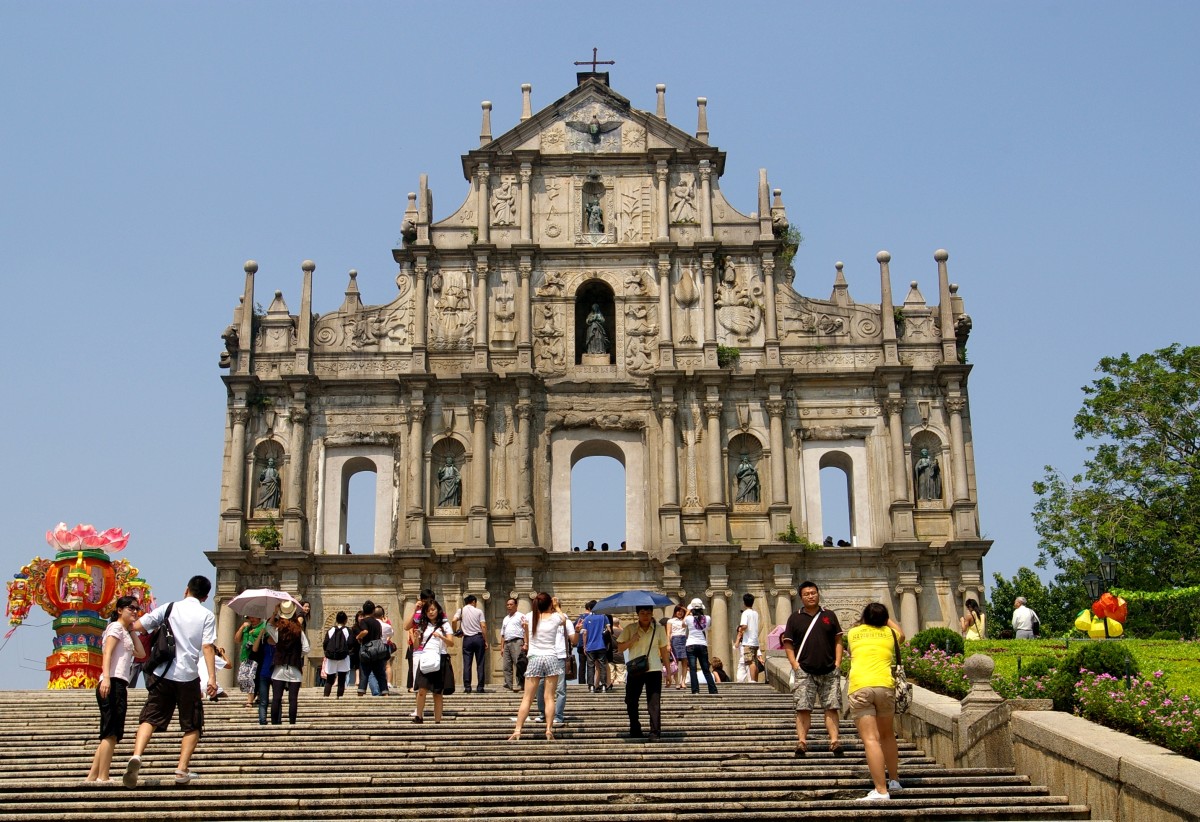
Macau, a Special Administrative Region of China, is a captivating destination that effortlessly blends its rich colonial past with a dazzling present. Once a Portuguese enclave for over 400 years, it has transformed into a global hub of entertainment and gaming, earning the moniker "Las Vegas of Asia." Yet, beneath the glittering casinos lies a city steeped in history, boasting UNESCO World Heritage sites, vibrant culinary traditions, and a unique cultural tapestry. Traveling to Macau offers an experience unlike any other, a delightful paradox of East meets West, tradition meets modernity.
This comprehensive guide will equip you with everything you need to plan your unforgettable journey to Macau, from understanding its history and attractions to navigating its practicalities.
A Glimpse into Macau’s Storied Past

Related Articles about Macau: A Journey Through Time and Glamour:
- Lebanon: The Resilient Jewel of the Levant – Your Comprehensive Travel Guide
- A Traveler’s Guide to Surabaya: Discovering the Soul of Indonesia’s City of Heroes
- Milan: A Symphony of Style, History, and Gastronomy
- Castles, Cobblestones, and Comfort: Unveiling the Best Hotels in the Czech Republic
- Embark on a Hellenic Adventure: Your Comprehensive Guide to Traveling Greece
Macau’s history is intrinsically linked to Portuguese exploration. In the mid-16th century, Portuguese merchants were granted permission to settle in Macau by the Chinese Ming Dynasty. It became a crucial trading post for the East, facilitating commerce between China, Japan, and Europe. Over the centuries, Macau evolved into a distinct colonial settlement, absorbing Portuguese architecture, language, and customs, while simultaneously remaining under Chinese sovereignty.
This unique dual heritage is evident everywhere you look. The cobblestone streets, Baroque churches, and pastel-colored buildings stand in striking contrast to the towering skyscrapers and neon-lit casinos. In 1999, Macau was handed back to China under the "one country, two systems" principle, promising a high degree of autonomy. This transition has allowed Macau to flourish economically, particularly in the tourism and gaming sectors, while preserving its distinct cultural identity.
Unveiling Macau’s Top Attractions
Macau’s allure lies in its diverse array of attractions, catering to history buffs, culture enthusiasts, and those seeking exhilarating entertainment.
1. Historic Centre of Macau (UNESCO World Heritage Site): This is the heart and soul of Macau’s historical significance. Wander through its charming streets and discover:
- Ruins of St. Paul’s: The iconic facade of this 17th-century church, the only remaining part of St. Paul’s College, is Macau’s most recognizable landmark. Climbing the steps to its base offers panoramic views and a poignant reminder of its past.
- Senado Square: A bustling pedestrian plaza paved with mosaic cobblestones, surrounded by neoclassical buildings that showcase Portuguese influence. It’s a vibrant hub for local life and a perfect starting point for exploring the historic center.
- A-Ma Temple: Dedicated to Mazu, the Chinese goddess of the sea, this ancient temple is believed to be the origin of Macau’s name. Its serene atmosphere and traditional architecture offer a glimpse into local religious practices.
- Mount Fortress: Offering breathtaking views of the city and beyond, this 17th-century Portuguese fortress was once a crucial defensive structure. It now houses the Macau Museum, providing deeper insights into the region’s history and culture.
- St. Dominic’s Church: A beautiful yellow Baroque church dating back to the 17th century, known for its intricate interior and peaceful ambiance.

2. The Cotai Strip: This is where Macau’s modern-day glamour truly shines. Built on reclaimed land between the islands of Taipa and Coloane, the Cotai Strip is a dazzling spectacle of integrated resorts, casinos, and entertainment venues.
- The Venetian Macao: Transport yourself to Venice with its canals, gondola rides, and replicas of Venetian architecture. It’s a shopper’s paradise and an entertainment powerhouse.
- The Parisian Macao: Dominated by a half-scale replica of the Eiffel Tower, this resort offers a taste of Parisian charm, complete with boutique shops and dining experiences.
- City of Dreams: A sprawling complex featuring world-class casinos, luxury hotels, and a mesmerizing water show, "The House of Dancing Water" (though check for current show availability).
- Wynn Palace: Known for its opulent design, the SkyCab cable car ride offering views of the Performance Lake and its dancing fountains is a must-see.
3. Taipa Village: A charming contrast to the glitz of the Cotai Strip, Taipa Village retains its Portuguese colonial character with narrow streets, traditional houses, and delightful local eateries. It’s a great place to experience authentic Macanese cuisine and browse for unique souvenirs.
4. Coloane Village: The southernmost village in Macau, Coloane offers a tranquil escape from the city’s hustle and bustle. Its picturesque harbor, historic chapel, and the famous Lord Stow’s Bakery (home of the original Portuguese egg tart) make it a worthwhile visit.
5. Macau Tower Convention and Entertainment Centre: For adrenaline junkies, the Macau Tower offers thrilling activities like bungy jumping, skywalk, and a thrilling free-fall. The observation deck provides stunning panoramic views of the region.
Essential Travel Tips for Your Macau Adventure
To ensure a smooth and enjoyable trip, here are some practical tips for traveling to Macau:
- Visa Requirements: Most nationalities do not require a visa for short stays in Macau. However, it’s crucial to check the latest visa regulations for your specific nationality with the Macau Public Security Police Force or your local embassy/consulate.
- Currency: The official currency is the Macanese Pataca (MOP). However, Hong Kong Dollars (HKD) are widely accepted throughout Macau, with an exchange rate of 1:1. It’s advisable to carry a mix of both.
- Language: The official languages are Portuguese and Chinese (Cantonese). English is widely spoken in tourist areas, hotels, and casinos.
- Connectivity: Wi-Fi is readily available in hotels, cafes, and public areas. Consider purchasing a local SIM card for constant connectivity.
- Tipping: Tipping is not customary in Macau, especially in restaurants and hotels, where service charges are usually included. However, if you receive exceptional service, a small tip is always appreciated.
- Respect Local Customs: While Macau is a cosmopolitan city, it’s important to be respectful of local customs and traditions. Dress modestly when visiting temples and religious sites.
- Stay Hydrated: Macau can be humid, especially during the summer months. Carry a reusable water bottle and stay hydrated.
- Travel Insurance: It’s always wise to have comprehensive travel insurance to cover any unforeseen medical emergencies or trip disruptions.
Accommodation Options: From Luxury to Budget
Macau offers a wide spectrum of accommodation to suit every budget and preference.
- Luxury Hotels (Cotai Strip & Macau Peninsula): For an opulent experience, the Cotai Strip boasts world-renowned integrated resorts like The Venetian, The Parisian, City of Dreams, and Wynn Palace. On the Macau Peninsula, you’ll find luxury options like the Grand Lisboa and Mandarin Oriental. These hotels offer lavish rooms, fine dining, casinos, and extensive entertainment facilities.
- Mid-Range Hotels (Macau Peninsula & Taipa): The Macau Peninsula and Taipa offer a good selection of mid-range hotels that provide comfortable stays without the hefty price tag of the mega-resorts. Look for hotels near Senado Square or in Taipa Village for a more central and charming experience.
- Budget-Friendly Options (Macau Peninsula): Travelers on a tighter budget can find guesthouses and smaller hotels, particularly on the Macau Peninsula. These options might be more basic but offer a clean and convenient base for exploring the city. Booking in advance is recommended, especially during peak seasons.
- Boutique Hotels: For a more unique and intimate stay, consider some of the boutique hotels scattered throughout the historic center, offering charming ambiance and personalized service.
Navigating Macau: Transportation at Your Fingertips
Getting around Macau is relatively easy and efficient, with various transportation options available.
- Walking: The Historic Centre of Macau is best explored on foot. Its compact nature and charming streets make walking a delightful way to discover its hidden gems.
- Taxis: Taxis are readily available and are a convenient way to travel between different parts of Macau. Ensure the meter is used. Black taxis are standard, while cream-colored taxis are usually for airport or hotel services.
- Public Buses: Macau has an extensive public bus network that connects most major attractions and residential areas. Buses are affordable and a great way to experience local life. Consider purchasing a Macau Pass for easy payment.
- Free Shuttle Buses: Most of the large casino resorts on the Cotai Strip offer free shuttle buses that connect them to various points in Macau, including ferry terminals, border crossings, and other resorts. These are an excellent way to save on transportation costs.
- Ferry: For travelers arriving from Hong Kong or other mainland Chinese cities, ferries are a popular and efficient mode of transport. TurboJET and Cotai Water Jet are the main ferry operators, with frequent services to Macau from Hong Kong Macau Ferry Terminal and China Ferry Terminal.
- Light Rail Transit (LRT): Macau’s LRT system is still under development, with the Taipa Line currently operational, connecting the Taipa Ferry Terminal to the Cotai Strip.
The Best Time to Visit Macau
Macau enjoys a subtropical climate, with distinct seasons. The best time to visit depends on your preferences for weather and crowd levels.
- Autumn (September to November): This is arguably the best time to visit Macau. The weather is pleasant and mild, with lower humidity and comfortable temperatures, ideal for outdoor exploration. The skies are often clear, offering beautiful views.
- Spring (March to May): Spring also offers pleasant weather, with warmer temperatures and blooming flowers. However, humidity can start to increase towards the end of spring.
- Winter (December to February): Winters in Macau are generally mild and dry, with cooler temperatures. It’s a good time for sightseeing, and you might find fewer crowds compared to the peak seasons.
- Summer (June to August): Summers are hot and humid, with a higher chance of rainfall and typhoons. While you can still visit, be prepared for the heat and potential disruptions to outdoor activities.
Macau’s Festive Calendar: If you’re looking for vibrant cultural experiences, consider visiting during:
- Chinese New Year (late January or February): The city comes alive with colorful decorations, lion dances, and lively celebrations.
- Macau Arts Festival (May): Showcases a diverse range of performing arts, music, and exhibitions.
- Macau International Fireworks Display Contest (September): A spectacular annual event that lights up the night sky with dazzling fireworks.
A Culinary Journey Through Macau
Macau is a gastronomic paradise, renowned for its unique Macanese cuisine, a fusion of Portuguese and Chinese flavors, alongside world-class international dining.
- Macanese Cuisine: Don’t leave without trying the iconic African Chicken, a flavorful dish with chicken baked in a spicy sauce of coconut milk, chili, and other spices. Other must-tries include Minchi (minced meat with potatoes), Bacalhau (salt cod), and the legendary Portuguese Egg Tart.
- Dim Sum: Indulge in authentic Cantonese dim sum, with numerous restaurants offering a wide array of steamed, fried, and baked delicacies.
- International Dining: The high-end resorts offer a plethora of Michelin-starred restaurants and international culinary experiences, from French haute cuisine to Japanese sushi.
- Street Food: Explore the bustling markets and street food stalls for local snacks and treats.
Conclusion: Macau Awaits Your Discovery
Macau is a destination that promises a rich tapestry of experiences. Whether you’re drawn to its historical charm, captivated by its glittering entertainment, or enticed by its unique culinary landscape, Macau offers an unforgettable journey. By understanding its history, planning your itinerary, and embracing the practical tips outlined in this guide, you’re well on your way to discovering the magic of this extraordinary city. So, pack your bags, embrace the spirit of adventure, and prepare to be captivated by Macau’s timeless allure.





